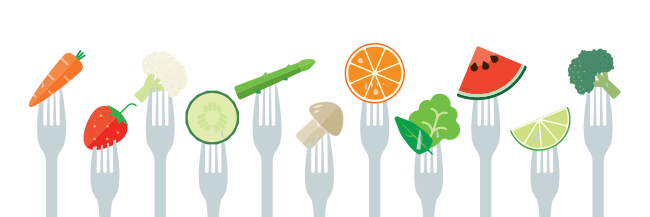
Tips for taking care of your teeth and oral health
To properly care for your teeth at home, you should be thinking outside of your regular routine – bruising, flossing and rinsing isn’t enough for impeccable oral health. Your teeth are in contact with food and drink all day. While we’d like to think we eat well always, there are some vitamins that work to take extra care of our pearly whites.
The Good
Calcium and Vitamin D
Find it in: milk, yoghurt, cheese, beans, oysters / milk, egg yolk, fish, the sun
How it helps: Calcium builds the basis of your teeth and jaws and maintains their strength. A diet low in calcium could leave you at risk of developing gum disease and tooth decay. Vitamin D helps your body to absorb calcium, which is of course needed for good oral health, and keeps your general oral health in good condition. Burning mouth syndrome is caused by a lack of vitamin D. Presenting as a ‘burning’, dry, metallic-tasting mouth, burning mouth syndrome may affect the tongue and other parts of the mouth. It appears suddenly and can also be accompanied by increased thirst and loss of taste.
Iron
Find it in: red meat, bran cereals, some nuts and spices.
How it helps: Lack of iron can cause your tongue to become inflamed, gums to turn white, and sored to form inside your mouth. Severe iron deficiency is called ‘iron deficiency anaemia’ and is a real issue that should be treated by a doctor. Iron’s main purpose is to transport oxygen throughout your body; a lack iron, and consequently oxygen, can contribute to dental infections and bacteria build-up.
Vitamin B3 (niacin)
Find it in: chicken, fish
How it helps: Vitamin B3 serves the essential function of helping your body covert food into energy, and helps your nervous system function smoothly. Canker sores in the mouth and bad breath are often caused by a lack of vitamin B3.
Vitamins B12 and B2 (riboflavin)
Find it in: milk, yogurt, cheese / pasta, bagels, spinach, almonds
How it helps: Mouth sores are also triggered by a lack of vitamins B12 and B2. To avoid these sores, consume foods such as almonds, yoghurt and spinach.
Vitamin C
Find it in: sweet potato, red capsicum, oranges
How it helps: Vitamin C is critical in preventing gingivitis and maintaining a high standard of oral health – too little vitamin C will lead to bleeding gums and loose teeth.
The Bad
Carbohydrates
Find it in: bread, potato, pasta, crackers
Why it’s no good: Bacteria love to feed of the food debris in your mouth. As they do, the by-produce acid, which causes decay. Because of this, carb-heavy foods can be as detrimental to your oral health as candy! By having a glass of water after eating, you are able to flush away the worst of the debris. Don’t forget to floss!
Sugar
Find it in: desserts, muesli bars, dried fruit, candy, some chewing gum, soft drink, fruit juice
Why it’s no good: We know that avoiding sugar is hard – it’s in almost everything! Unfortunately, sugar is notorious for causing and speeding up decay. If the sugary treat you are eating is also hard, sticky or chewy, you might also break your teeth. To minimise damage, avoid anything that might crack your teeth, drink your sugary drinks through a straw to reduce contact with your teeth, and practice good oral hygiene.
Fruit Acid
Find it in: citrus fruits, cranberry juice
Why it’s no good: The acid found in various fruits softens the enamel on your teeth, leaving them susceptible to damage and erosion. To prevent this, never suck on lemon, limes, or any other highly acidic fruit, use a straw when drinking fruit juice and rinse with water after consuming these products.
If you would like to learn more, or to request an appointment, please contact us.